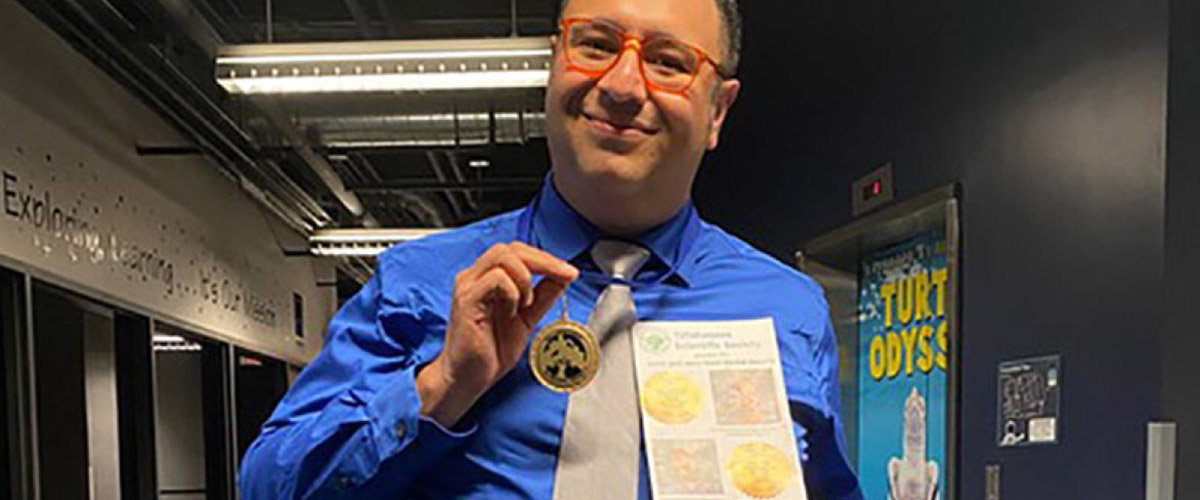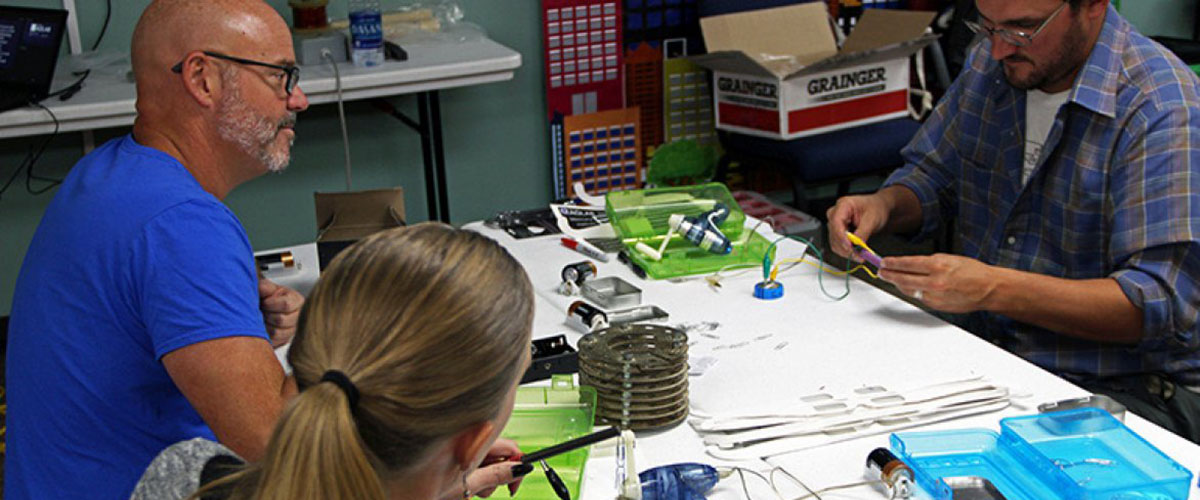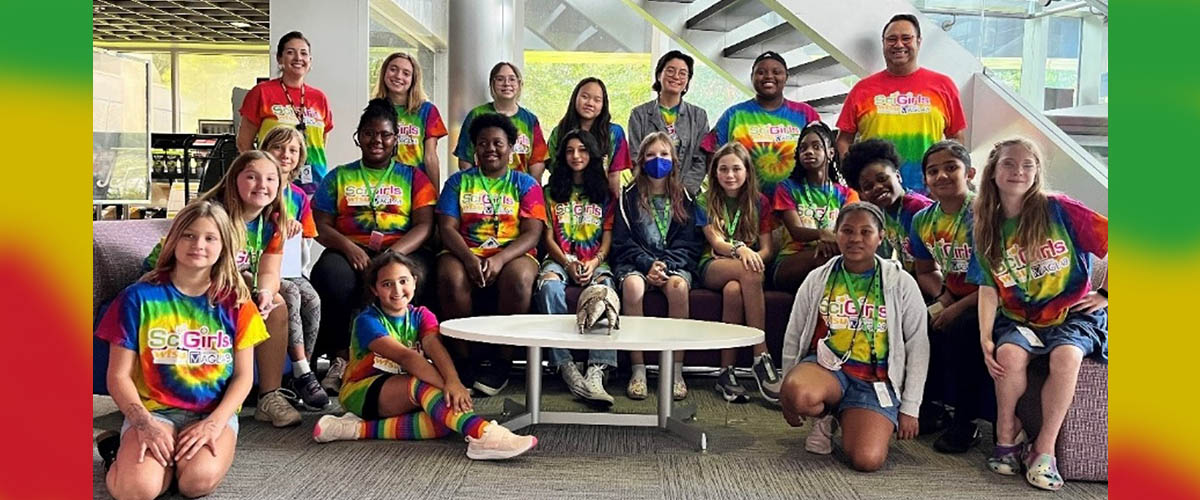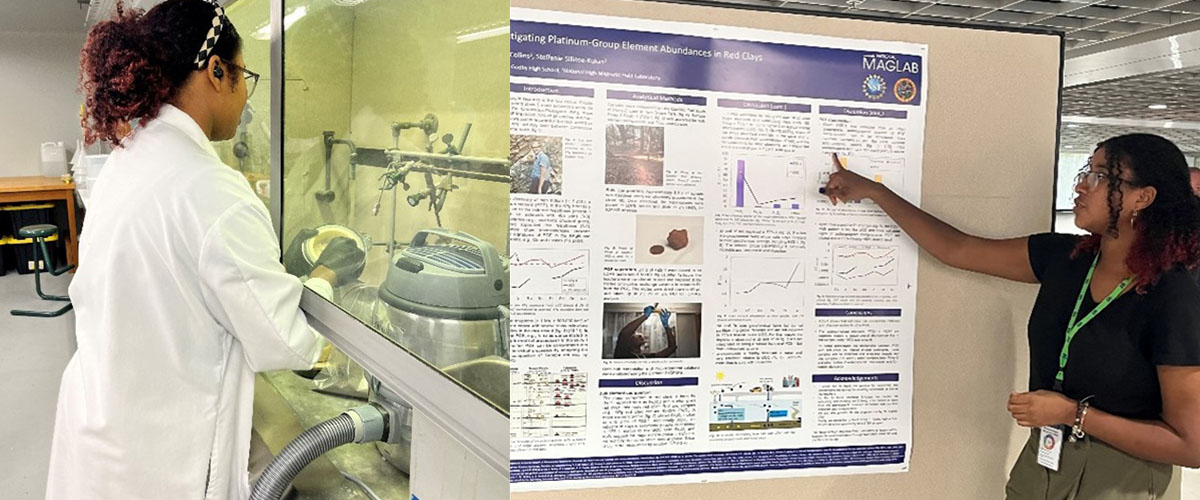What is the finding?
Carlos R. Villa, who is usually surrounded by K-12 students, now joins a list of prestigious honorees recognized by the Tallahassee Scientific Society (TSS) for his contributions to science education. He is the first educator and first non-researcher to receive the TSS Gold Medal Award, which has also gone to founding MagLab Director Jack Crow (2004), Nobel Prize winning chemist and MagLab user Harry Kroto (2008), Ion Cyclotron Resonance Chief Scientist Alan Marshall (2011), and MagLab Chief Scientist Laura Greene (2019).
Why is this important?
The Gold Medal is awarded annually to a member of the Tallahassee scientific community to recognize outstanding career contributions to science, public service, and science education. These are measured by peer recognition and highlight an entire career of achievement. The award was created to recognize accomplishment in expanding knowledge and public appreciation of STEM in Tallahassee and its surrounding communities.
Who was involved?
C.R. Villa1
1Center for Integrating Research and Learning (CIRL) at the MagLab, 2Florida A&M University (FAMU)
Why did they need the MagLab?
In his role as the Director of K-12 Education Programs at the MagLab, Carlos helps support K-12 educational programming. In his 20 years at the MagLab, Carlos has directly educated over 120,000 students across hundreds of schools. This impressive tally includes field trips and classroom visits but does not include an additional 1,000 summer campers from the MagLab Summer Camps (TESLA & SciGirls) or an additional 300 students who have conducted research alongside MagLab scientists as a result of the MagLab’s Middle School Mentorship (MSM) program.
Funding
This research was funded by the following grants: G.S. Boebinger (NSF DMR-1157490, NSF DMR-1644779)
For more information, contact Carlos R. Villa.






